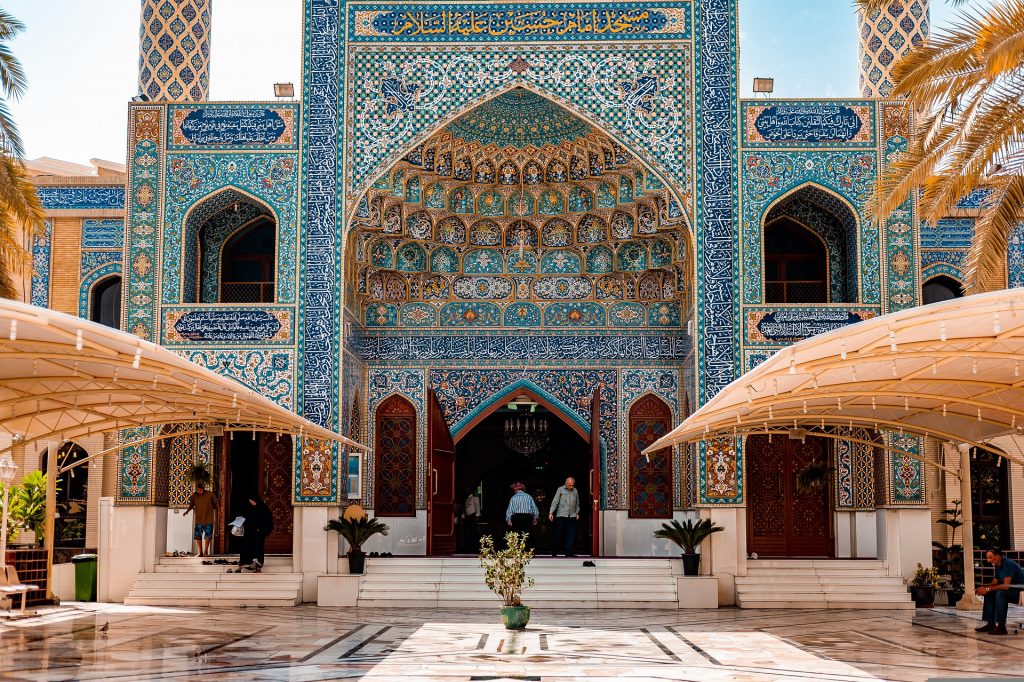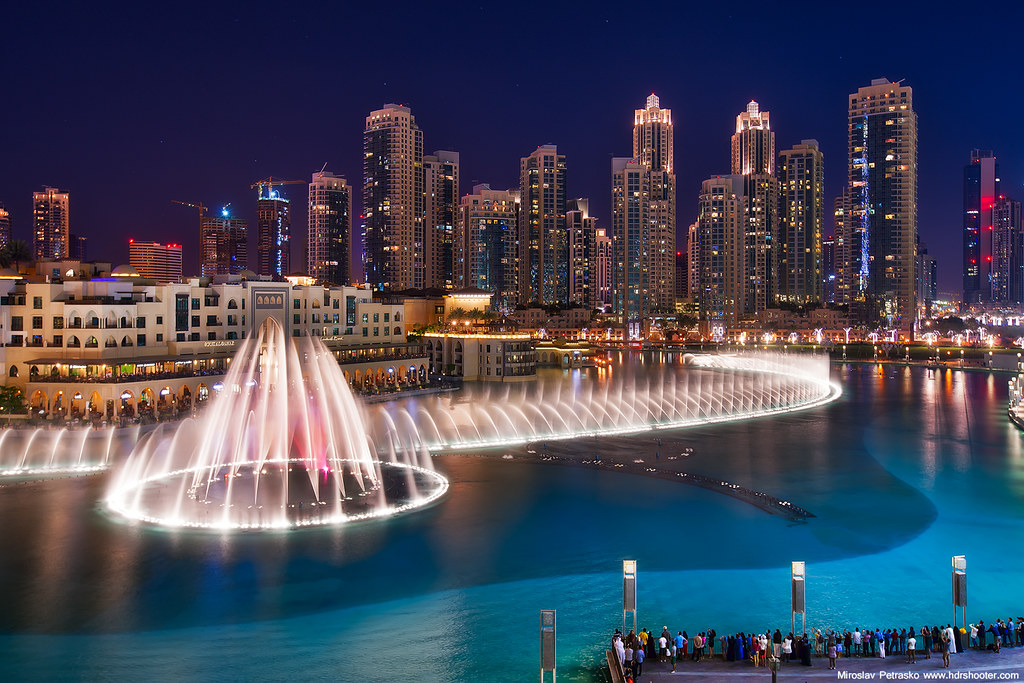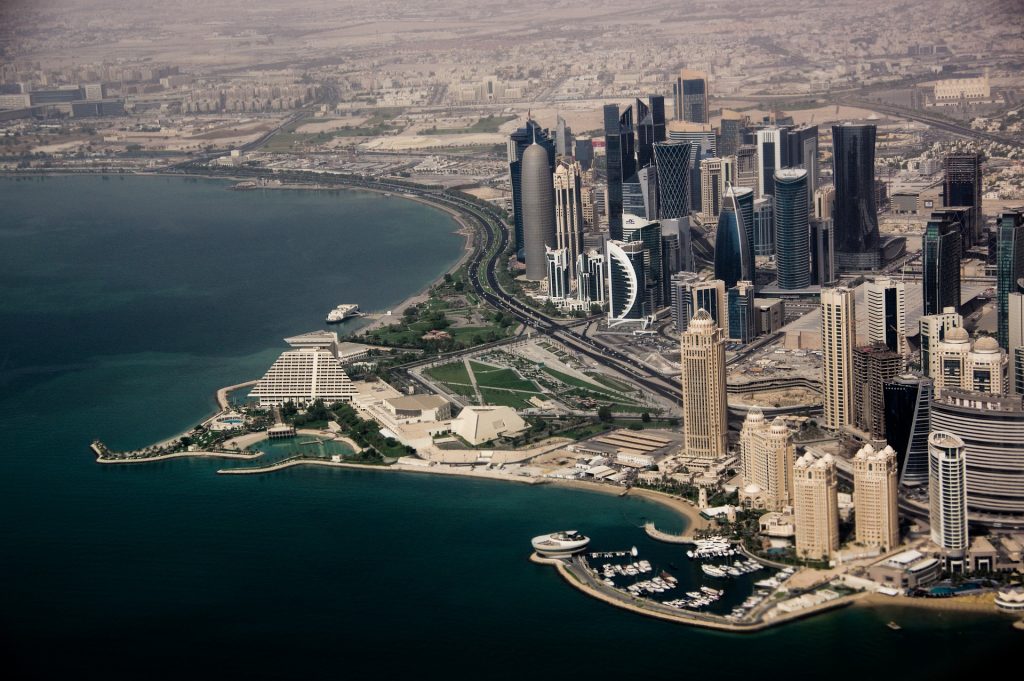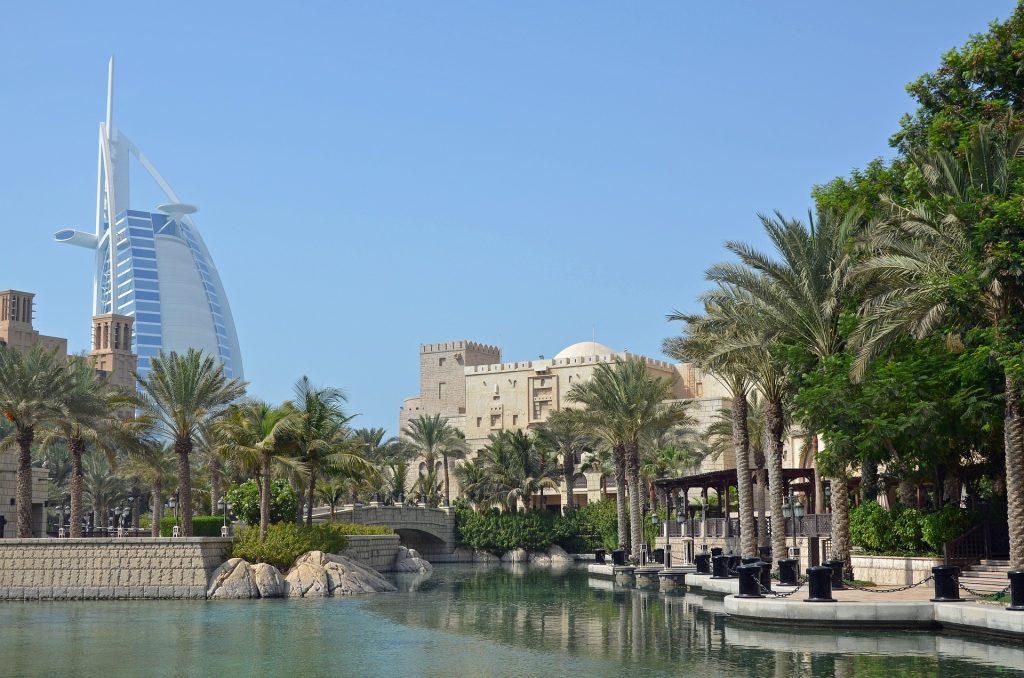10 coisas que nunca te contaram sobre Dubai

Dubai é a cidade mais populosa dos Emirados Árabes Unidos, e a mais rica e influente de todos os sete emirados, depois de Abu Dhabi. Dubai é uma cidade que há décadas é vista como uma metrópole global, e por isso é chamada assim, pois se tornou famosa por seus prédios altos, grandes shoppings e estilo de vida extravagante nos últimos anos.
As ricas fontes de Dubai estão em cada esquina que você virar, e a cidade possui uma atraente mistura de culturas de toda a região, o que a torna um lugar encantador para se visitar. Além disso, Dubai é o destino perfeito para quem busca as férias dos sonhos, com dias ensolarados, e paisagens de tirar o fôlego. A cidade conta com praias de areia branca com água azul clara, edifícios históricos em arquitetura moderna, mas também oferece um clima desértico que varia de ensolarado, seco e quente a úmido e frio, dependendo das condições climáticas e da época do ano.
1. História da Cidade
A cidade tem uma história muito antiga, que remonta para o ano de 2.500 a.C, mas foi fundada oficialmente como oque nós conhecemos hoje em 1833, pelo comerciante persa Sheikh Maktoum bin Hasher Al Maktoum, fazendo parte do Emirado de Abu Dhabi até 1966. No entanto, antes mesmo da descoberta de petróleo nos anos 60, a cidade já prosperava desde 1892, sob a liderança de Al Maktoum, que nessa época, com novas leis de isenção de impostos, permitiu que estrangeiros começassem a se estabelecer na cidade.
Dubai cresceu rapidamente e mudou muito nas últimas décadas, passando de uma pequena cidade sem petróleo, a uma cidade moderna que apresenta todo o tipo de arquitetura futurista que você poderia imaginar. Vamos dar uma olhada em alguns fatos interessantes sobre a cultura de Dubai, para que você possa se sentir um especialista ao visitar.
2. Cultura

Dubai é a única cidade do mundo a ter 2 zonas de cultura separadas, mas seu modo de vida tradicional foi interrompido por uma invasão de trabalhadores da construção civil que vieram para o “boom” da construção que surgiu devido às descobertas de petróleo de Dubai nas décadas de 1960 e 1970. Como resultado disso, Dubai se tornou uma das cidades mais ricas do mundo.
Dubai é uma das poucas cidades globais que oferecem uma mistura tão única de tradição e modernidade, oferecendo toques de nostalgia com muito luxo envolvido ao mesmo tempo. A cidade foi historicamente moldada por suas relações comerciais com outros países e culturas, o que lhe deu vitalidade e riqueza.
3. Turismo
Dubai tem muito a oferecer a seus turistas, e as praias, monumentos, espetáculos, hotéis e shopping centers de Dubai são apenas algumas das características que a tornam tão popular entre os visitantes do mundo inteiro. Os marcos da cidade incluem o Burj Khalifa (o edifício mais alto do mundo) e uma série de ilhas artificiais em forma de palmeiras, além do Aeroporto Internacional de Dubai, que também é uma visita obrigatória.
A cidade está repleta de pontos turísticos interessantes que vão fazer você querer voltar para mais vezes, como a Mesquita de Jumeirah, o Jumeirah Beach Residence e o The Palm Jumeirah. Além disso, Dubai abriga muitos lugares atraentes para visitar, como museus e resorts.
4. Culinária
Uma das coisas que mais impressiona nesse lugar é sua variedade de culinária, que oferece desde comida indiana picante, até comida mexicana. Dubai tem algo para todos, e um dos fatos mais interessantes sobre a culinária de Dubai pode ser encontrado em sua história. Na década de 1940, quando o país estava sendo reconstruído, um homem chamado Juma Al Majid introduziu um bufê durante todo o dia em seu hotel, onde se podia desfrutar de comida árabe e ocidental feita por chefs de todo o mundo.
Você pode encontrar restaurantes que servem pratos de todo o mundo por aqui, bem como mercados prósperos em todos os bairros, não importa se você procura um prato tradicional ou uma comida de fusão, aqui você encontra. A cozinha de Dubai é uma fusão de pratos asiáticos e europeus, enquanto a comida tradicional dos Emirados também é popular.
5. Negócios

Por incrível que pareça Dubai não é apenas um destino turístico, mas também um centro muito forte no ramo dos negócios, uma vez que a cidade se tornou um dos lugares mais populares para se viver e trabalhar nos últimos tempos. Dubai é uma das cidades mais competitivas e atraentes do mundo, e tem muito a oferecer em termos de cultura, trabalho e entretenimento.
A economia de Dubai é impulsionada principalmente pelo turismo, imóveis e indústrias de varejo que substituíram as indústrias tradicionais, como petróleo e gás. E um fato interessante que nem todos sabem, é que o ataque de 11 de setembro teve um impacto significante em Dubai, pois afetou todos os aeroportos do mundo, o que impediu que as pessoas viajassem de, ou para Dubai.
6. População
Dubai tem uma população crescente de imigrantes e expatriados que representam cerca de 80% de sua população, e essas pessoas se mudaram para Dubai para encontrar trabalho e sustentar suas famílias. A população de Dubai cresceu de 180.000 pessoas em 1972 para mais de 2 milhões de pessoas hoje, e a porcentagem de residentes que são cidadãos dos Emirados caiu de 75% em 1973 para cerca de 20% hoje, devido ao grande fluxo de expatriados do sul da Ásia, iranianos e europeus, bem como refugiados.
A população de Dubai é estimada em 2,6 milhões de pessoas e isso é apenas contando aqueles que vivem em Dubai propriamente dito, pois população total de Dubai, incluindo todas as suas subcidades, é de mais ou menos 4 milhões de pessoas. Isso a torna uma das cidades mais densamente povoadas do mundo, com um quarto de sua população vivendo em uma área que representa apenas 22% de sua área total.
7. Arquitetura

Dubai é uma cidade onde os extremos se encontram muito, pois a cidade tem literalmente de tudo, desde o arranha-céu mais alto do mundo até a maior fonte dançante do planeta. Desde a maior pista de esqui coberta do mundo até um dos poucos safáris urbanos do planeta, e com suas vastas extensões territoriais, Dubai se tornou uma cidade que oferece infinitas novas possibilidades para projetos arquitetônicos ousados.
A cidade possui 270 arranha-céus completos mas esse número aumentará bastante em um futuro próximo. Com 339 edifícios em construção neste momento e 330 aprovados (mais do que os edifícios já completados), incluindo muitos arranha-céus.
8. Compras
Algumas coisas que você pode se interessar em Dubai também são sua grande quantidade de shoppings de luxo, a cidade conta com mais de 70 shopping centers, o que o torna um dos shopping centers mais densamente povoados do mundo. Suas belas características naturais como desertos e praias, parques, jardins e santuários de vida selvagem, também oferecem atividades super legais como passeios de safári no deserto, e passeios de mergulho também são atrações turísticas populares para os visitantes de Dubai.
Fazer compras em Dubai pode ser um pouco estranho no começo, mas parece que é comum no Oriente Médio as pessoas comprarem o que precisam e sair rapidamente. Os táxis não são tão usados quanto em outros países, e os carros geralmente são compartilhados entre as famílias ou levados em regime de compartilhamento pelos motoristas.
9. Localização e Território

Dubai é um Emirado dos Emirados Árabes Unidos que brange toda a cidade-estado de Dubai, e a maioria dos emirados que eram conhecidos como Sharjah, Ajman e Umm Al Quwain. Sua geografia consiste em algumas grandes cidades portuárias naturais, incluindo Dubai Creek e um litoral que possui uma das praias mais longas do mundo, com 11 milhas de comprimento.
Suas raízes remontam antigas rotas comerciais que estavam presentes na região devido à sua localização no Golfo Pérsico, e foi mencionada pela primeira vez em 1799 pelo oficial naval britânico William Kirkpatrick em sua viagem à Índia. Ele disse: “Ouso dizer que não há lugar na terra tão bem defendido do mar como este”. O governante de Dubai nessa época era o Sheikh Maktoum bin Hasher Al Maktoum, que também foi responsável por construir muito do que vemos hoje.
10. Gestão
O sistema político de Dubai é liderado por um governante que pode nomear e remover seus ministros à vontade. O PIB de Dubai tem aumentado constantemente nos últimos anos, e sua economia é considerada por muitos como uma das mais importantes do Oriente Médio. A estabilidade política e a liberdade econômica de Dubai a tornaram um destino muito atraente para investidores de todo o mundo.
Dubai não tem recursos naturais, então toda a sua eletricidade vem de usinas de dessalinização que produzem água da água do mar para o cultivo de alimentos., e os Emirados Árabes Unidos importam 85% de seus alimentos para atender a demanda. Dubai tem mais de 12 escolas internacionais com mais de 50 currículos internacionais, como currículos britânicos, americanos, franceses, indianos e paquistaneses.